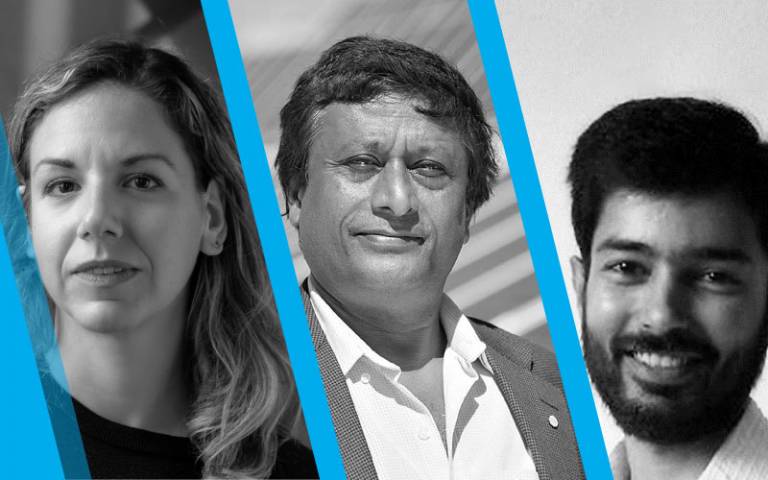Transforming Construction Network Plus explores projects working towards net zero target
25 June 2020
International speakers discuss offsite construction, refurbishment and prefabrication during Transforming Construction Network Plus webinar

Offering the opportunity to hear from international experts on offsite construction and energy efficiency, the Transforming Construction Network Plus held its fourth international webinar on Wednesday 10 June. Moderated by Prof Paul Ruyssevelt of the UCL Energy Institute, the session featured Dr Thaleia Konstantinou, Assistant Professor at Delft University of Technology; Professor Deo Prasad, CEO of the Low Carbon Living CRC and Dr Malay Dave, sessional academic at the University of New South Wales in Australia.
Speakers discussed past and present projects that have focused on energy efficiency, and considered how lessons learned from such projects can help us shape the future of offsite construction and achieve the net zero carbon target.
Starting the webinar, Dr Konstantinou offered an overview of the building stock in The Netherlands, describing its similarities with the UK sector. Explaining that only 1% of new buildings are added each year, she highlighted the importance and potential of refurbishment. To meet the net zero target, she outlined the need for deep renovation and an increase in the number of renovated dwellings, as well as introducing prefabrication and offsite construction as potential routes to consider.
Considering industrialisation, she noted that learning from errors in the past might help to develop better, replicable solutions:
'We need to use the potential that industrialisation offers to increase the effectiveness, the productivity but also the quality, while minimising on-site construction time.'
Dr Konstantinou then presented two initiatives from the Netherlands: Energiesprong, a whole house refurbishment construction and funding approach, and 2ndSkin project, a zero-energy refurbishment solution for residential apartment buildings. She concluded that, by combining current technologies and relevant business models, there is real potential to accelerate the sector’s transition towards net zero.
Taking a different approach, Prof Prasad presented projects that had been developed in the Australian built environment context. He introduced one of the initiatives developed by the University of New South Wales, a 15-year solar supply agreement, which had brought together a retailer, developer and corporate, to enable the university to achieve its goal of carbon neutrality on energy use by 2020.
He also discussed a study undertaken by the Low Carbon Living CRC which sought to identify energy efficiency measures; over a 40-year lifetime, the financial benefits from a societal perspective were likely to outweigh the capital cost of the technology installed.
Prof Prasad concluded with his insights on a low waste and low energy design project at the University of New South Wales, featuring a very efficient mode of construction.
Following Prof Prasad’s presentation, Dr Malay Dave provided insights into prefabricated construction in Australia. While prefabrication offers key advantages such as increasing sustainability performance, increasing quality, and reducing costs and risks, he noted some of the problems that could explain its slow adoption by the sector.
Presenting a potential solution, he discussed a current collaborative research project, which outlined a high-performance modular housing venture. This would offer both environmentally sustainable and economically affordable construction, plus a design that could cope with multiple climates.
Sharing some reflections on the country’s recent economic difficulties, he also described the challenges that Australian companies have to overcome to succeed:
‘Good design and high-performance construction system are not going to guarantee the success in prefabrication, there are many factors, including business models, market forces, social acceptances and many other factors that are quite important to consider.’
He closed his presentation on a hopeful note, highlighting some of the projects and companies that are helping to define the future for prefabrication in Australia.
The webinar concluded with a panel discussion moderated by Professor Paul Ruyssevelt.
This event was the fourth N+ international webinars, which is part of the Transforming Construction Challenge. The N+ is funded by UK Research and Innovation through the Industrial Strategy Challenge Fund. The N+ is uniting construction’s academic and industrial communities to create a new research and knowledge base, dedicated to addressing the systemic problems holding back the sector.
 Close
Close


